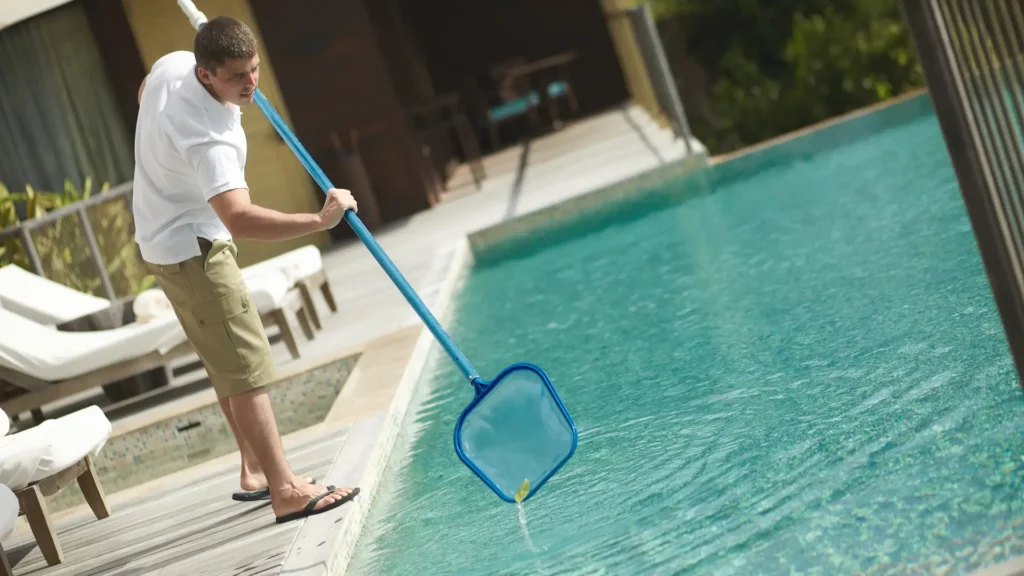Achieving expert-level pool maintenance involves more than just routine cleaning and chemical balancing. Advanced techniques can help maintain water clarity, extend the life of pool equipment, and ensure a safe swimming environment. Here’s a guide to advanced pool maintenance techniques that go beyond the basics.
Regular Water Testing and Balancing
While basic pool maintenance involves weekly water testing, advanced maintenance requires more frequent testing and precise chemical balancing. Utilize digital water testing kits for accurate readings of pH, chlorine, alkalinity, calcium hardness, and cyanuric acid levels. Maintaining optimal levels prevents algae growth, scaling, and corrosion, ensuring crystal-clear water. Adjust chemicals in small increments and re-test to fine-tune the water balance for expert results.
Filter Deep Cleaning and Maintenance
Regular backwashing of your pool filter is essential, but advanced pool maintenance includes deep cleaning at least twice a season. For sand filters, this means removing the sand and washing it thoroughly. Cartridge filters should be soaked in a cleaning solution to remove oils and debris. DE filters require complete disassembly and cleaning of each grid. Keeping your filter in top condition enhances its efficiency, ensuring better water circulation and clarity.
Optimizing Pump Performance
The pool pump is the heart of your circulation system. Advanced maintenance involves checking the pump’s performance regularly. Ensure the pump is the correct size for your pool and operates at optimal efficiency. Lubricate the O-rings and check for leaks or wear in the seals. Monitor the pressure gauge and maintain it within the manufacturer’s recommended range. Consider upgrading to a variable speed pump for energy savings and more precise control over water flow.
Implementing a Scheduled Cleaning Regimen
Basic cleaning includes skimming the surface and vacuuming the pool floor. Advanced techniques involve a more rigorous cleaning schedule. Brush the pool walls and floor weekly to prevent algae buildup and staining. Use an automatic pool cleaner to ensure thorough cleaning of hard-to-reach areas. Regularly clean the skimmer and pump baskets to maintain optimal water flow and filtration. Implementing a consistent and comprehensive cleaning regimen keeps your pool pristine.
Utilizing Advanced Chemical Treatments
Beyond standard chlorine and pH adjustments, advanced pool maintenance includes the use of specialty chemicals. Algaecides, enzymes, and clarifiers can prevent and address specific issues like algae blooms, organic waste buildup, and cloudy water. Use metal sequestrants to prevent staining from iron and copper. Regularly shock the pool with non-chlorine oxidizers to remove chloramines and improve water quality. These treatments help maintain a balanced and healthy pool environment.
Seasonal and Preventative Maintenance
Advanced pool maintenance also involves seasonal and preventative care. Winterize your pool properly to prevent damage from freezing temperatures. This includes lowering the water level, adding antifreeze, and covering the pool securely. In spring, conduct a thorough inspection and cleaning before reopening the pool. Preventative maintenance, such as inspecting and replacing worn parts, ensures the longevity of your pool equipment and prevents costly repairs.
Mastering advanced pool maintenance techniques, such as regular water testing, deep cleaning filters, optimizing pump performance, implementing a rigorous cleaning regimen, utilizing advanced chemical treatments, and conducting seasonal maintenance, ensures your pool remains in expert condition. These practices go beyond the basics, providing a superior swimming experience and extending the life of your pool.
Learn more:
Understanding Pool pH and Alkalinity: Keys to Effective Water Balance and Maintenance

